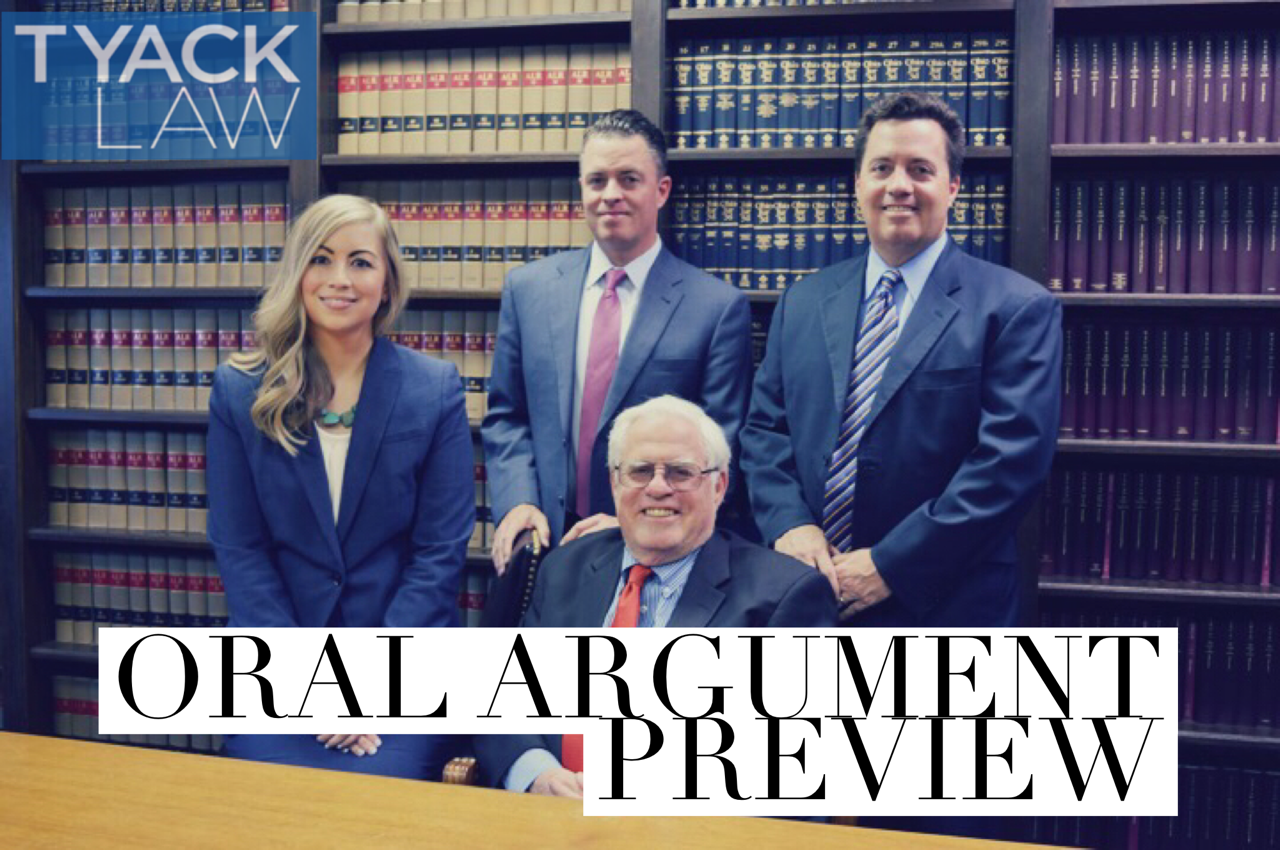
By: Holly Cline
Next Tuesday, the Ohio Supreme Court will consider in State of Ohio v. Anthony Carnes, 2017-0087 whether a juvenile adjudication can be used to prove an element of the offense of having a weapon while under disability, pursuant to R.C. 2923.13.
Factual Background
Now 40-years-old, the Appellant, Anthony Carnes, had a physical altercation with another teenager in 1994 when Mr. Carnes was 17-years-old. Mr. Carnes was adjudicated as a juvenile in Hamilton County, wherein he was found to be “delinquent” for conduct that, had it been committed by an adult, would have been felonious assault. Significantly, during his juvenile proceeding, Carnes and his mother waived his right to counsel.
Twenty years after his juvenile adjudication, Carnes was charged with having a weapon while under disability, in violation of R.C. 2923.13(A)(2), a felony of the third degree.
R.C. 2923.13(A)(3) provides that no person, unless relieve from disability under operation of law or legal process, shall knowingly acquire, have, carry, or use any firearm or dangerous ordnance if that person has been adjudicated a delinquent child for the commission of an offense that, if committed by an adult, would have been a felony offense of violence.
In Carnes’s 2014 case, the 1994 juvenile adjudication was the basis for the “disability.” Carnes moved to dismiss the indictment, arguing that his waiver of counsel had been invalid. The trial court, finding a valid waiver of counsel, denied his motion. After being convicted of having a weapon while under disability, Carnes was sentenced to thirty months in prison.
Carnes appealed his case to the First District Court of Appeals, and the appellate court ultimately affirmed the trial court’s decision. The appellate court, noting that the juvenile adjudication in Carnes’s case was used as an element of the offense and not as a penalty enhancement, distinguished Carnes’s case from the Ohio Supreme Court’s recent precedent holding that a juvenile adjudication of delinquency could not be used to enhance the penalty of an offense later committed as an adult.
Relevant Legal Background and Analysis
The Supreme Court of the United States has held that “[o]ther than the fact of a prior conviction, any fact that increases the penalty for a crime beyond the statutory prescribed maximum must be submitted to a jury, and proved beyond a reasonable doubt.” Apprendi New Jersey, 530 U.S. 466 (2000). “The touchstone for determining whether a fact must be found by a jury beyond a reasonable doubt is whether the fact constitutes an ‘element’ or ‘ingredient’ of the charged offense.” Alleyne v. United States, 570 U.S. ___, 133 S.Ct. 2151 (2013).
However, in Lewis v. United States, 445 U.S. 55 (1980), the United States Supreme Court held that because the focus of the federal gun regulations is to keep firearms out of the hands of those considered potentially dangerous, an uncounseled felony conviction could serve as the disability prohibiting possession of a firearm without violating the United States Constitution.
The Ohio Supreme Court is, however, “entirely free to read its own state’s constitution more broadly than [the U.S. Supreme] Court reads the Federal Constitution, or to reject the mode of analysis used by [the U.S. Supreme] Court in favor of a different analysis of its corresponding constitutional guarantee.” Arnold v. Cleveland, 7 Ohio St.3d 35 (1993).
Indeed, in 2015, the Supreme Court of Ohio held that “an adjudication of delinquency may not be used to enhance the penalty for a later offense under R.C. 4511.19(G)(1)(d) when the adjudication carried the possibility of confinement, the adjudication was uncounseled, and there was no effective waiver of the right to counsel.” State v. Bode, 2015-Ohio-1519, syllabus.
Just four months after its decision in Bode, the Court reiterated that a “juvenile adjudication is not a conviction of a crime and should not be treated as one.” State v. Hand, 2016-Ohio-5504, ¶ 38. Significantly, the Hand decision stood for the proposition that a juvenile adjudication—whether counseled or uncounseled—may not be used to enhance the degree of or the sentence for a subsequent adult criminal offense. This decision was based on the Court’s belief that it is “fundamentally unfair to allow juvenile adjudications that result from * * * less formal proceedings to be characterized as criminal convictions that may later enhance adult punishment.” Id. at ¶ 35.
Thus, even if the Federal Constitution does not offer protection in this instance, the Ohio Supreme Court could interpret the Ohio Constitution as offering a greater protection for juveniles adjudicated as “delinquent.” Thus, unlike the Federal Constitution, the Court could interpret the Ohio Constitution as prohibiting the use of juvenile adjudications as an element of an adult criminal offense. On the other hand, the Court could lockstep with the United States' Supreme Court’s holding in Lewis and hold that the Ohio General Assembly acted within its legislative power when it used certain juvenile adjudications to create a firearm disability—regardless of whether those juveniles were counseled or uncounseled, and despite a juvenile’s absence of a right to a jury.
That a juvenile offender has no right to a jury in a juvenile adjudication may ultimately have little effect on the outcome. Significantly, the Supreme Court of Ohio has held that a conviction for violation of the offense of having weapons while under disability as defined by R.C. 2923.13(A)(3) does not require proof of a culpable mental state of the element that the offender is under indictment for * * *.” State v. Johnson, 2010-Ohio-6301.
Oral Argument
The Ohio Supreme Court will hear oral arguments in State v. Carnes on Tuesday, February 27, 2018 at 9:00 AM.
Talk with an experienced lawyer today.
Fill out the form below to get started with your case evaluation.















